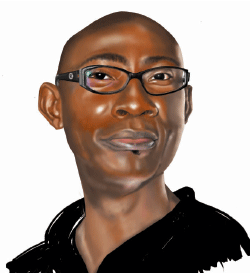Last week, Nigerians got more worried about certain developments. One was the mounting agitation by governors for a bail out from President Muhammadu Buhari to enable them pay workers.
The governors, who have failed to read the lips of Buhari, got what they bargained for on Wednesday, June 24 when he indirectly said no by listing measures to be taken before his administration can offer financial assistance.
The only option open to states now is to restructure their debts from shorter tenured instrument to a longer one, to give them relief and help them execute projects and pay salaries.
Chairman of the Nigerian Governors’ Forum (NGF) and Zamfara State Governor, Abdulazziz Yari, put states’ indebtedness, for which they want bail out from the central government, at N658 billion.
But Buhari advised the governors to recover funds stolen by their predecessors and other officials to raise cash to run state affairs.
Buhari had earlier told them that their request would be subject to the advice of his yet-to-be assembled economic team, approval from the Central Bank of Nigeria (CBN) and approval of state Houses of Assembly. That means he has no money to give to any governor now.
What Buhari said on Tuesday, June 23 when he moved into Aso Rock – lamenting that he inherited an empty treasury from his predecessor, Goodluck Jonathan, and asking those who served in Jonathan’s government to refund billions of stolen public funds – also shows that he wants governors to carry their own cans.
More worrisome, however, is the “war” in the National Assembly (NASS), where Senate President Bukola Saraki rebuffs the leadership of his All Progressive Congress (APC), which wants to run the affairs of the Senate from the sidelines.
Developments in the House of Representatives also present a growing worry that is capable of disrupting the change mantra the APC administration wants Nigerians to key into.
On Thursday, June 25 House members engaged in an embarrassing brawl over the election of principal officers. The clothes of some of them were torn to shreds.
The House descended into a full blown crisis when rancorous members disrupted plenary by breaking into two factions; one supporting the APC leadership, which seeks to choose the principal officers, and the other backing Speaker Yakubu Dogara, who, like Saraki, defies the party leadership by toeing the line of independence of the arms of government in a democracy and, invariably, independence of the legislature.
Dogara had hardly settled down to commence plenary when some APC members began to raise points of order, causing some lawmakers to rush for the mace, the symbol of authority of the House.
Dogara had to adjourn sitting until July 21.
The Senate had also hurriedly adjourned, dashing the hopes of Nigerians anticipating Buhari to forward his list of ministerial nominees to the Upper House for screening.
But Saraki said the Senate would reconvene before July 21 “if there is any matter of urgent national importance that requires its attention.”
At the heart of all this is the insistence of the leadership of the APC to dictate to the NASS leadership how to go about its business.
Nigerians had thought that part of what the APC, chaired by John Odigie-Oyegun, was going to do differently from the Peoples Democratic Party (PDP) was to respect the independence of the three arms of government.
Until politicians realise that the executive, legislature and judiciary complement one another, and not for one to supplant or influence another, we will not experience the change the APC promised.
My take on the letters Oyegun wrote to Saraki and Dogara on the party’s position on the principal officers of the NASS is that if the proposal is allowed to stand, a few individuals from four zone would run the country, not on merit (except for the president and his vice; Senate president and his deputy, House speaker and his deputy who were elected).
Going by the letters, which should not be implemented, the North West would produce the president, Senate deputy chief whip and House deputy leader; South West (vice president, Senate chief whip, House deputy speaker and House leader); North Central (Senate president and Senate deputy majority leader); North East (House speaker, Senate majority leader and House chief whip).
So far, the South East has deputy Senate president; and South South, House deputy chief whip. Even at that, underhand tactics are being deployed to nullify the election of Ike Ekweremadu as Deputy Senate President.
Not long ago I warned in this column about the dangers of Igbophobia exhibited by politicians and other leaders in Nigeria.
Does Oyegun being APC National Chairman alone compensate for the sacrifices people from the South South made, including working against their kinsman, former President Goodluck Jonathan, to ensure the electoral victory of the APC?
It is becoming obvious that Oyegun was brought on board by some people to hijack power for personal interest. Earlier speculations that some powerful political sorcerers bent on finishing off some sections of the country politically, mainly the South East are using him is beginning to manifest.
A greater insight into the letters Oyegun wrote to Saraki and Dogara on June 23 exposes the desire of some APC top shots using him to send across their message of hatred for certain zones in the country.
Nigerians are waiting for Oyegun to write a letter to Buhari on the composition of his cabinet to see if he would balance the imbalance he asked Saraki and Dogara to adopt.
Soon, his letters to the NASS would hunt him, his political future, and those of his pay masters.
Those asking Buhari to tell Saraki to obey the position of the APC leadership miss the point. Even governors eager to meet the NASS leadership to persuade it to adopt Oyegun’s script may be on a wild goose chase.
The only meaningful intervention Buhari and governors can make is to uphold the independence of the three arms of government.
Luckily, Buhari had declared earlier that he would not interfere in the business of the NASS. He should not allow the selfish ambition of a select few in the party to soil his credibility and integrity.
The power game in the NASS is expected and the only way it can be resolved is if men of honour stand for the tenets of democracy devoid of manipulation.
The president and the governors have enough headache in their own territories to deal with; they should be encouraged to face such problems.
They should stop meddling in the affairs of an arm of government where elected lawmakers and their leaders can run their own business and achieve result.







